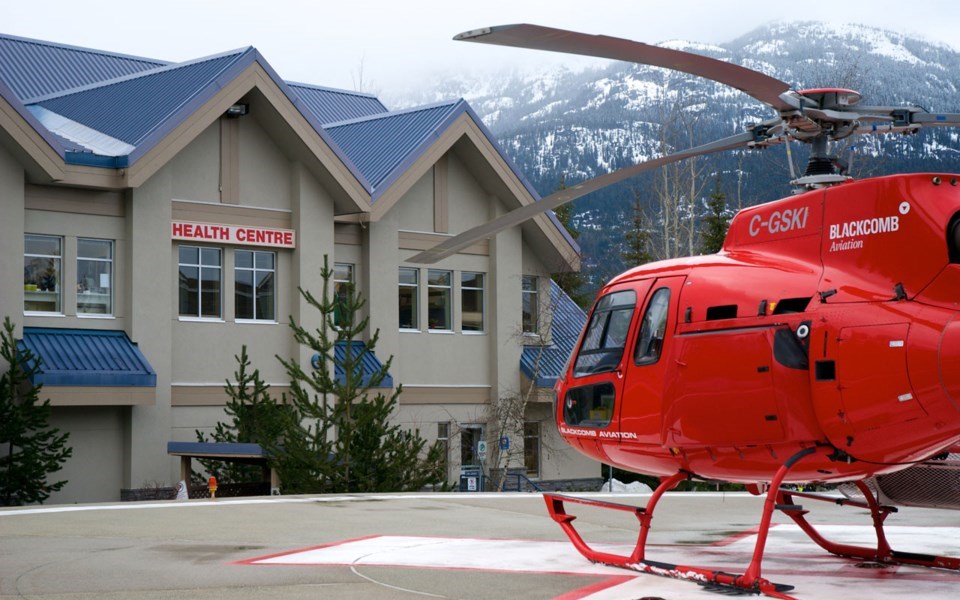Some women in Whistler have been struggling to get Papanicolaou (Pap) exams in the community over the last year and local doctors say ripple effects from the COVID-19 pandemic are to blame.
Just before Holly Bune left her home in the U.K. to move to Whistler, she learned her Pap test—a routine medical exam that screens for cervical cancer—had turned up irregular cells.
Her doctor advised she was safe for the moment, but she should definitely follow up with a physician in 12 months.
So, in September 2020, Bune asked to book an appointment at Whistler’s Town Plaza Medical Clinic but “they said they weren’t doing [Pap exams] with COVID,” she said.
Instead, she was told to try Whistler Medical Clinic (WMC). They, in turn, referred her to the Whistler Options for Sexual Health Clinic.
But as it turned out, when Bune was scheduled to speak to a clinic doctor over the phone, which patients have to do before booking an exam, she happened to be out of cell service and missed the call.
In the end, despite not having a car, she booked an appointment at the Squamish Sexual Health Clinic in November and got in two weeks later. Following the appointment, she was told to get checked in six months to monitor the situation. Earlier this month she called Town Plaza for the follow-up but with ongoing COVID-19 patient protocols and backlog, it couldn’t be booked, so her plan now is to return to get a Pap test in Squamish.
Bune isn’t the only Whistler woman in this predicament. And, according to local doctors, it’s due to a combination of problems.
Town Plaza Medical Clinic is hoping to address this situation of Pap test backlog more fully heading into June, as the situation with the pandemic improves, doctors get fully vaccinated, and patients can return, well-spaced out, to in-person visits as needed, said Dr. Janice Carr.
While a few patients have had the tests done at the clinic in recent months, Carr confirmed that due to the coronavirus, “I haven’t done routine Paps for well over a year.”
She added that any patient who had the exams and needed follow-up was, of course, helped.
“It won’t be practice as normal … until maybe the fall,” she said, adding that Town Plaza is moving forward as safely as it can and is booking as many patients as possible.
“All physicians are disheartened having to work under these circumstances. It is really difficult.”
WMC faces the same issues, with the main problem being a backlog of appointments due to the early days of COVID-19. Back then, patients were reluctant to come in for regular exams. On top of that, clinics also have a policy of first speaking to patients by phone to determine if they should come in.
To help address the problem—which is compounded by a perpetual doctor shortage in the resort—Dr. Danielle Patterson, of WMC, has come up with a pilot initiative that’s proving to be successful.
“Normally we get lists every month or so [from the BC Cancer Agency] telling us how many people we have to recall for their Paps,” Patterson said. “During COVID, the regular recall system was on hold because we weren’t seeing people in person. We had to prioritize COVID-related work and try to find a way to see patients in person in a safe way. Once we were seeing people in person again I got a full-page list of women who needed their recall for Paps or women’s health exams.”
In a town with only seven permanent primary care providers, this has been a problem, she added.
In the meantime, Patterson had heard about a pilot project in Kamloops that saw nurses hired to work alongside doctors to help tackle some of the workload, and inspired, has done the same thing.
“It’s been hugely successful,” she said. “We see an extra 10 women each week over and above my normal workload. We’re not just doing Paps; we also look at other preventative health strategies [such as] blood pressure, blood checks, skin checks and other cancer screening.
“The volume is much more manageable,” she added. “I actually couldn’t get through the list of recalls by myself. It would take forever.”
In the meantime, new patients needing Pap exams are encouraged to book through the Whistler Options for Sexual Health Clinic.
“It is stressful and it’s not how we want to practise,” said Patterson. “We don’t want to leave people unattended for their medical needs. As GPs, we do care a lot.”
For her part, Bune encourages Whistler women to persevere with finding an appointment for the potentially life-saving exam.
“I definitely want to emphasize it’s paramount that women get checked—although it might not be easy because of COVID, options are available in Squamish,” she said. “You should get seen no matter what, especially if you’re having concerns.”




